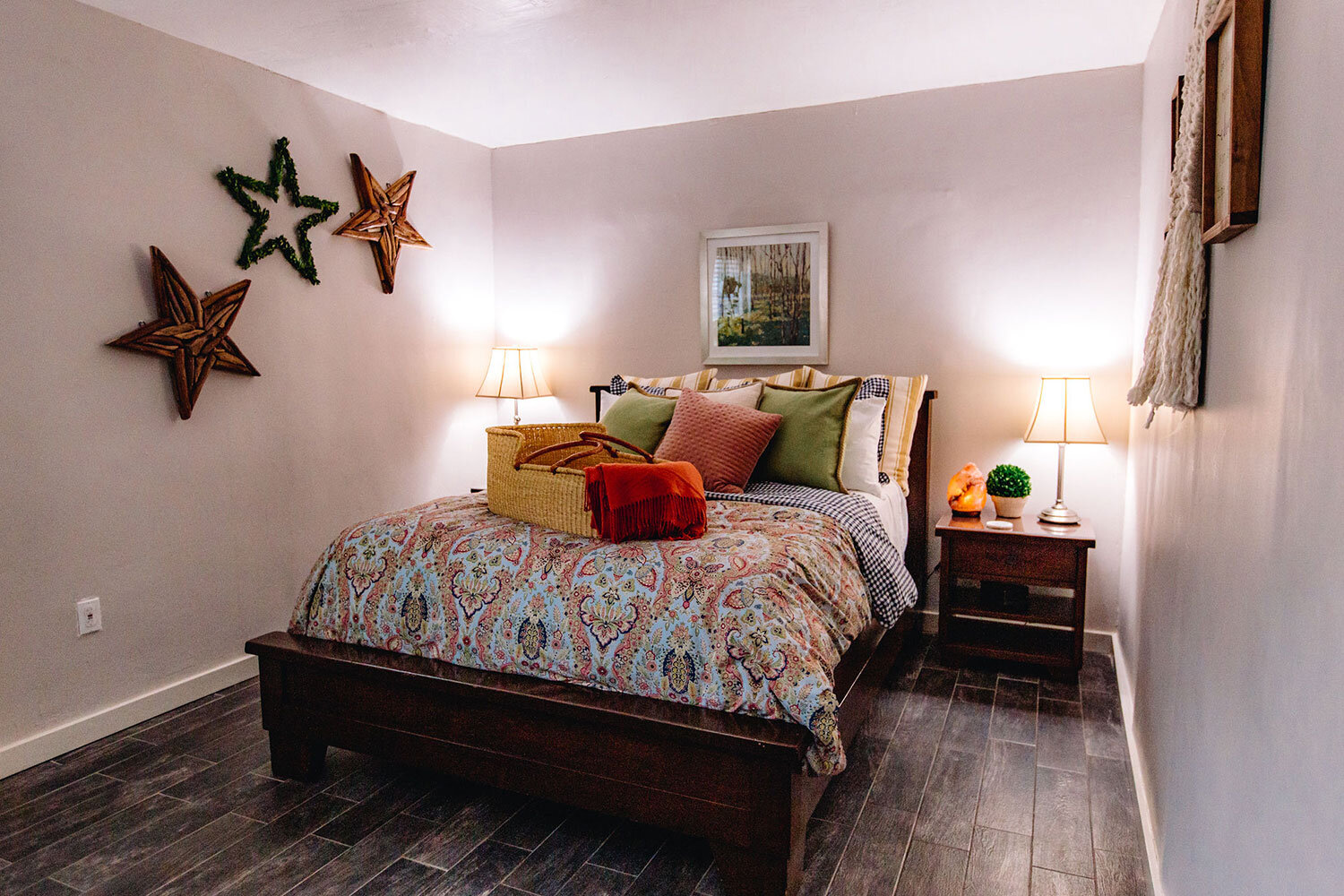Meet Brenda Francis
LPN, LM, CPM, Staff Midwife
When I was seven years old growing up in Philadelphia, I witnessed my sister being born in the back of a car. The wheels in my young mind started turning, and I thought, “If we don’t have to be in the hospital, why do we go there to give birth?” That experience stuck with me, and I knew I wanted to assist moms with delivering their babies outside of the hospital.
As I navigated through life, I ended up giving birth to my first baby in a hospital after 30 hours of labor. I went against the grain at a time when epidurals and pain medication were common. My next baby was born on the way to the hospital in the back of an ambulance, and my third was born into my own hands 15 minutes after getting to the hospital. No medical staff members were in the room. When someone came in, I was holding the baby.
My third birth experience started a variety of ideas, thoughts, and feelings and took me back to my belief that birth doesn’t have to happen in a hospital. It sparked that initial flame from my childhood, but I couldn’t quite find information on how to make my dream of helping women give birth out of the hospital happen. I knew nobody who had a home birth and no midwives. There was no World Wide Web 36 years ago, and research was limited.
“A lot of women of color don’t know midwifery care is a viable option, but every Black woman knows someone who’s had a negative maternal health outcome.”
As I went forward in life, I needed sustainable employment to take care of my babies. I went to nursing school, and I thought that would be my segue to assisting women during birth. Not knowing much about midwifery, I became a nurse and tried everything in the field of nursing you could imagine. With each avenue I explored, I said, “This is not it.”
Then, I did a very short stint in labor and delivery. I thought that wasn’t quite it, but I did very well with it. I started taking on doula clients informally, although I didn’t know the term doula at the time. Whenever someone went into labor — a sister, friends, church friends — they would call me. I eventually found out there was this thing called a doula and got training for it. It opened my eyes to the birth world.
I also became a childbirth educator and a breastfeeding counselor. Wherever there were pregnant women, I wanted to be in the midst of educating them. I had the opportunity to be a childbirth educator at Princeton Health System, and I fell in love. I would go into the L&D unit, teach classes, and support women who were birthing at the hospital. Eventually, I learned about the routes to become a midwife. It was like a whole other world to me. I did my research and learned I could be an RN, then a CNM, or I could focus on out-of-hospital birth and be a CPM.
I chose CPM, and in 2009, I moved to Florida to attend the Florida School of Traditional Midwifery in Gainesville. I precepted with a variety of providers, including home birth midwives, birth center midwives, and OBs, giving me a well-rounded experience as a student.
Birthing suites at Magnolia.
Since completing my midwifery training, I’ve attended births in homes and birth centers, assisted birth center owners, and operated a very special, by-design home birth practice in central Florida. I met Tamara at a conference several years ago, and we’ve stayed connected. She recently reached out and said she needed some coverage and assistance. I’m happy to help at Magnolia when it’s needed, assisting with prenatal care and births two weekends a month.
One of my goals is to serve Black families. The number of women of color who were reaching to me was limited, which I find alarming because of the black maternal health crisis. I want to make an impact, but I wondered, “How do I reach these women?” Many women go with obstetric care because that’s the norm, or they ask, “Do I need to see an OB and a midwife?” A lot of women of color don’t know midwifery care is a viable option, but every Black woman knows someone who’s had a negative maternal health outcome. They know there is a crisis, but they don’t know there are options. Something that intrigued me about Magnolia was the number of women of color they serve. They know Magnolia is in the community, and I’ve been blown away. More women of color are aware of the difference in care.
My experience at Magnolia has been phenomenal. The clientele is so diverse and vibrant. They know what they want, and they’re going to get it. They’re vigilant about their care, which is empowering to me and causes me to want to do what I do even more.
When I’m not taking care of pregnant people, I enjoy spending time with my family. My husband and I have four adult children, one of whom I gained through marriage, and 14 grandbabies. For 10 of them, I had the pleasure of being an attendant and supporting their arrivals. One of them was born into my own hands as a midwife at home. That was special. I have a very supportive husband, who’s been there with me for the whole midwifery journey. A supporter needs support, and I’m so grateful for him.







